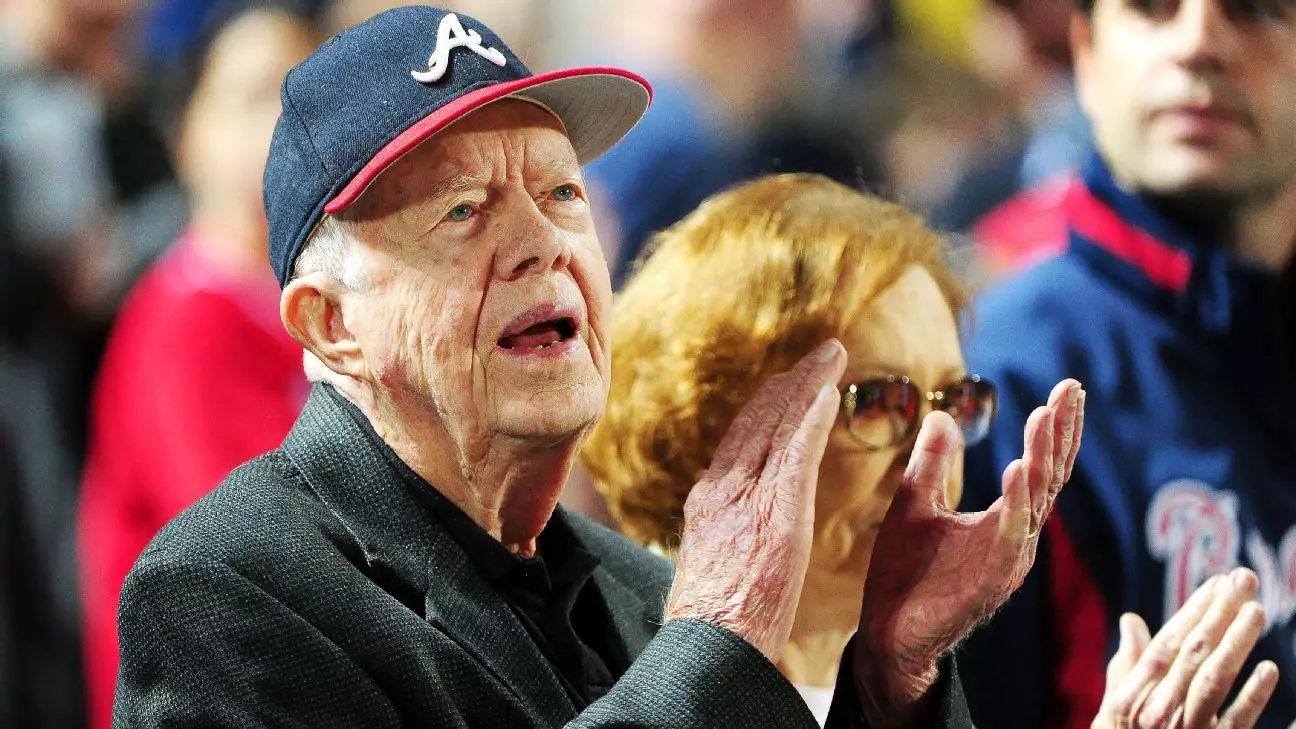The nation mourns the profound loss of former President Jimmy Carter, who passed away at the remarkable age of 100 in his beloved home in Plains, Georgia. Carter’s life and presidency symbolize an era in American politics that prioritized human rights, diplomacy, and the welfare of all citizens—values that resonate even today. As the longest-living president in U.S. history, his journey encompassed not just political achievements but a commitment to humanitarian efforts that define his enduring legacy.
Born James Earl Carter Jr., on October 1, 1924, Carter’s roots in rural Georgia shaped his worldview and values. His presidency from 1977 to 1981 faced a tumultuous global landscape marked by economic challenges and geopolitical tensions, notably the Soviet invasion of Afghanistan. This critical event prompted Carter to make the tough decision to lead a boycott of the 1980 Moscow Olympics, a move that drew widespread controversy and support alike.
Carter reflected on this decision in his memoirs, expressing the weight of that moment, which he described as one of the most challenging choices of his political life. Over 60 nations ultimately joined in the boycott, demonstrating the international consensus against Soviet aggression. This decisive action not only underscored U.S. commitment to its allies but also set a precedent for how sports can intersect with global diplomacy.
Carter was more than a commander-in-chief; he was a fervent advocate for democracy and human rights around the world. After his presidency, he founded The Carter Center, which focuses on disease prevention, conflict resolution, and advocacy for democratic governance. His tireless work earned him the Nobel Peace Prize in 2002, marking him as a global symbol of hope and resilience.
The Carter Center’s initiatives reflect his unwavering commitment to improving lives, whether through election monitoring or health campaigns aimed at eradication of diseases like Guinea worm disease. By emphasizing the interconnectedness of global communities, Carter pushed the boundaries of what it meant to serve as a former president, setting an example for those who followed him.
Moreover, he demonstrated his deep love for community through a long-standing partnership with Habitat for Humanity, dedicating over three decades to building homes and empowering families. This grassroots approach to philanthropy illustrated his belief in the importance of providing individuals with the means to improve their own lives.
Carter’s personal life was equally inspiring. He married his devoted partner, Rosalynn, in 1946—a union that lasted until her passing in late 2023. Together, they became a role model for many, showcasing a love rooted in mutual respect and shared values. Their commitment to each other and family life was evident as they raised three sons and a daughter, while also cherishing the joys of their numerous grandchildren and great-grandchildren.
Even in his later years, Carter remained actively engaged with his community and the issues that mattered to him. His final public appearances often included attending Atlanta Braves games, embodying the spirit of an enthusiastic sportsman while remaining linked to his Georgia roots. The connection he fostered with the people around him remained authentic and heartfelt throughout his life.
Carter’s personal battles were as inspiring as his public service. Diagnosed with cancer in 2015, he faced health challenges with characteristic grace, opting for minimal medical interventions as he entered hospice care earlier this year. His decision to spend his remaining time at home surrounded by family exemplified his lifelong prioritization of loved ones and quality of life.
His approach to illness and mortality has been a source of encouragement for many facing similar circumstances, emphasizing acceptance and dignity over despair. This candidness invites reflection on how life’s challenges can be met with strength and an unwavering spirit.
As we commemorate the life of Jimmy Carter, we recognize a unique polymath whose influence transcended the boundaries of his presidency. By merging a passionate commitment to public service with a deeply personal approach to life and family, Carter left an indelible mark on the landscape of American history. The values he championed—human dignity, empathy, and peace—remain as relevant and necessary today as they were during his tenure.
In remembering President Jimmy Carter, we not only honor his contributions to politics and humanitarianism but also celebrate a legacy marked by kindness, resilience, and unwavering commitment to making the world a better place. His passing is a poignant reminder of the power of service and the enduring impact one individual can have on countless lives.

